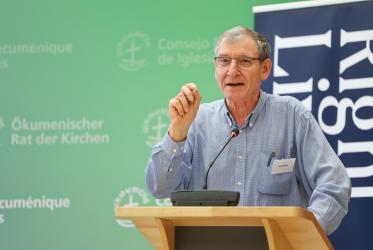Anglikanische Kirche von Australien
The Anglican Church came to Australia in 1788 with the "First Fleet", made up, for the most part, of convicts and military personnel. That community was ministered to by a chaplain. The whole continent of Australia formed an archdeaconry of the diocese of Calcutta in 1824 but in 1836 the first bishop of Australia was consecrated and soon after, in 1842, a second diocese, that of Tasmania, was formed. Five years later, three more dioceses were created, and the bishop of Australia became the bishop of Sydney. The first general synod was convened in 1872 when the number of dioceses had grown to ten. In the early years of the 20th century, the church was divided into four ecclesiastical provinces which correspond generally to the states of New South Wales, Victoria, Queensland and Western Australia. The province of South Australia was formed by the general synod in 1973. The diocese of Papua New Guinea had been part of the province of Queensland since its formation, but following proposals authorized by the general synod in 1973 and the independence of the country, it became a separate province in 1977.
In 1962 the constitution of the Church of England in Australia came into force, having first been approved by each diocesan synod and given legal force and effect by suitable acts passed by the six state parliaments. The general synod is required to meet at least once every four years. The primate is elected from among the diocesan bishops by an electoral college of bishops, clergy and laity. The name was changed to the Anglican Church of Australia in 1981 to better reflect the national identity. Women entered the diaconate in 1985 and the priesthood in 1992. Four dioceses do not ordain women to the priesthood while two of them do not ordain women to the diaconate either.
The church is committed to being intimately related with the culture, social order, political life and all other factors which combine to make up the fabric of the Australian nation. Considerable social welfare and counselling programmes are provided across the country through Anglicare Australia. Likewise, along with the parish and welfare aspects of the church's mission, there has developed a more national approach to the provision of education through the development of a comprehensive network of Anglican schools. Various crises, including the need to better ensure the churches are safe environments for all people, have prompted greater national cooperation as well.
Ecumenical cooperation is developed through fruitful bilateral dialogues as well as in a range of new initiatives: from the training of those doing spiritual direction, through theological education to lobbying and advocacy work on behalf of those more vulnerable.
There are still many big issues facing the church: re-imagining our English heritage in an increasingly multi-cultural society, better support for indigenous people, how to evangelize in a rather secular society, good relations with other faith communities both in Australia and in the Asia/Pacific region. Meanwhile, there is a good flow of young, talented clergy and laity preparing to take leadership of our church. Anglican Christian artists, musicians and writers are becoming more prominent. Overall, Anglicans are learning a little better how to be Christian in this "great Southland of the Holy Spirit".



